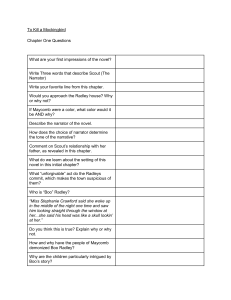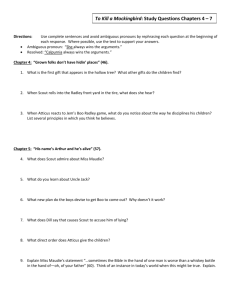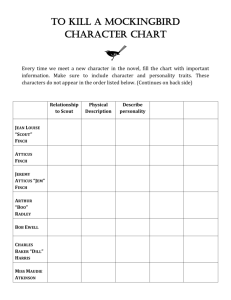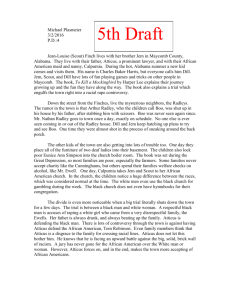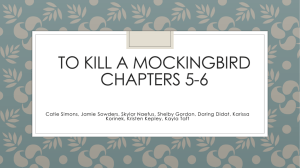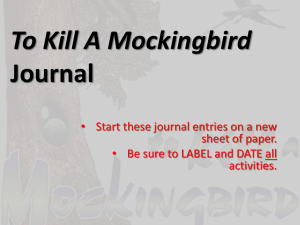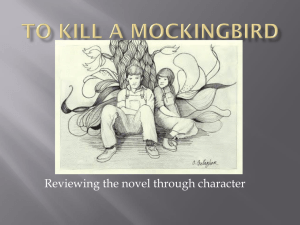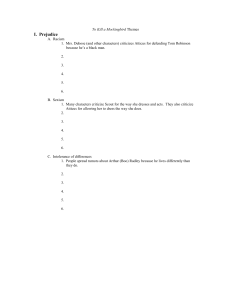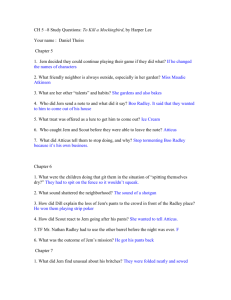Dialectical Journal EX.doc - thegreatbrooksconversation2011
advertisement
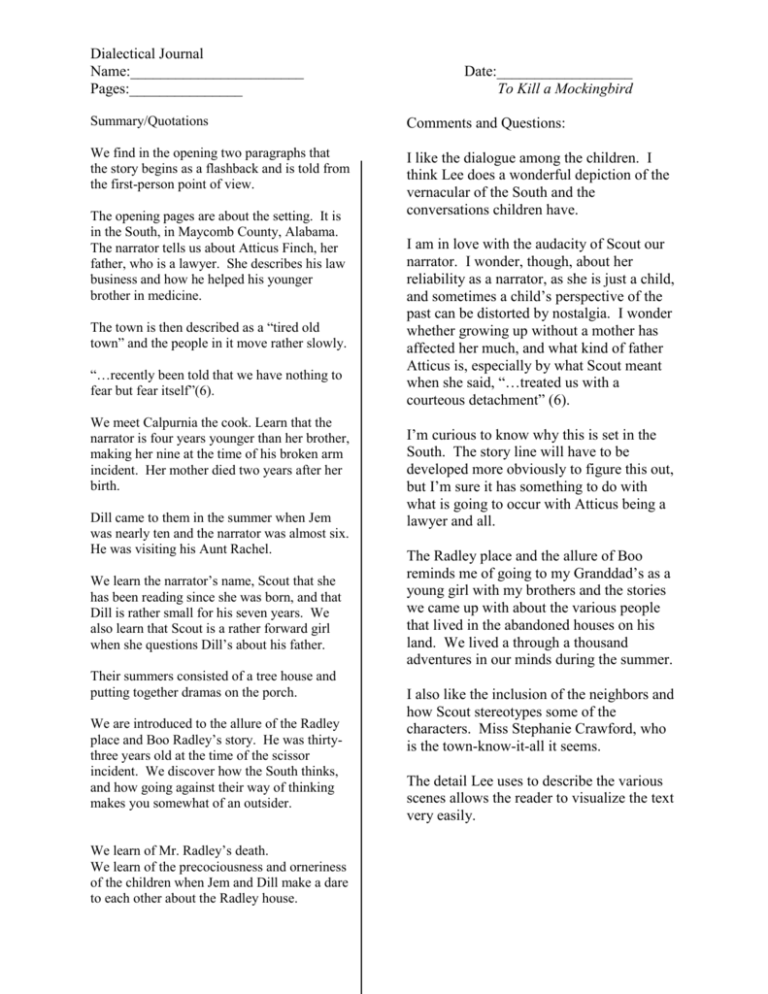
Dialectical Journal Name:_______________________ Pages:_______________ Date:__________________ To Kill a Mockingbird Summary/Quotations Comments and Questions: We find in the opening two paragraphs that the story begins as a flashback and is told from the first-person point of view. I like the dialogue among the children. I think Lee does a wonderful depiction of the vernacular of the South and the conversations children have. The opening pages are about the setting. It is in the South, in Maycomb County, Alabama. The narrator tells us about Atticus Finch, her father, who is a lawyer. She describes his law business and how he helped his younger brother in medicine. The town is then described as a “tired old town” and the people in it move rather slowly. “…recently been told that we have nothing to fear but fear itself”(6). We meet Calpurnia the cook. Learn that the narrator is four years younger than her brother, making her nine at the time of his broken arm incident. Her mother died two years after her birth. Dill came to them in the summer when Jem was nearly ten and the narrator was almost six. He was visiting his Aunt Rachel. We learn the narrator’s name, Scout that she has been reading since she was born, and that Dill is rather small for his seven years. We also learn that Scout is a rather forward girl when she questions Dill’s about his father. Their summers consisted of a tree house and putting together dramas on the porch. We are introduced to the allure of the Radley place and Boo Radley’s story. He was thirtythree years old at the time of the scissor incident. We discover how the South thinks, and how going against their way of thinking makes you somewhat of an outsider. We learn of Mr. Radley’s death. We learn of the precociousness and orneriness of the children when Jem and Dill make a dare to each other about the Radley house. I am in love with the audacity of Scout our narrator. I wonder, though, about her reliability as a narrator, as she is just a child, and sometimes a child’s perspective of the past can be distorted by nostalgia. I wonder whether growing up without a mother has affected her much, and what kind of father Atticus is, especially by what Scout meant when she said, “…treated us with a courteous detachment” (6). I’m curious to know why this is set in the South. The story line will have to be developed more obviously to figure this out, but I’m sure it has something to do with what is going to occur with Atticus being a lawyer and all. The Radley place and the allure of Boo reminds me of going to my Granddad’s as a young girl with my brothers and the stories we came up with about the various people that lived in the abandoned houses on his land. We lived a through a thousand adventures in our minds during the summer. I also like the inclusion of the neighbors and how Scout stereotypes some of the characters. Miss Stephanie Crawford, who is the town-know-it-all it seems. The detail Lee uses to describe the various scenes allows the reader to visualize the text very easily.

